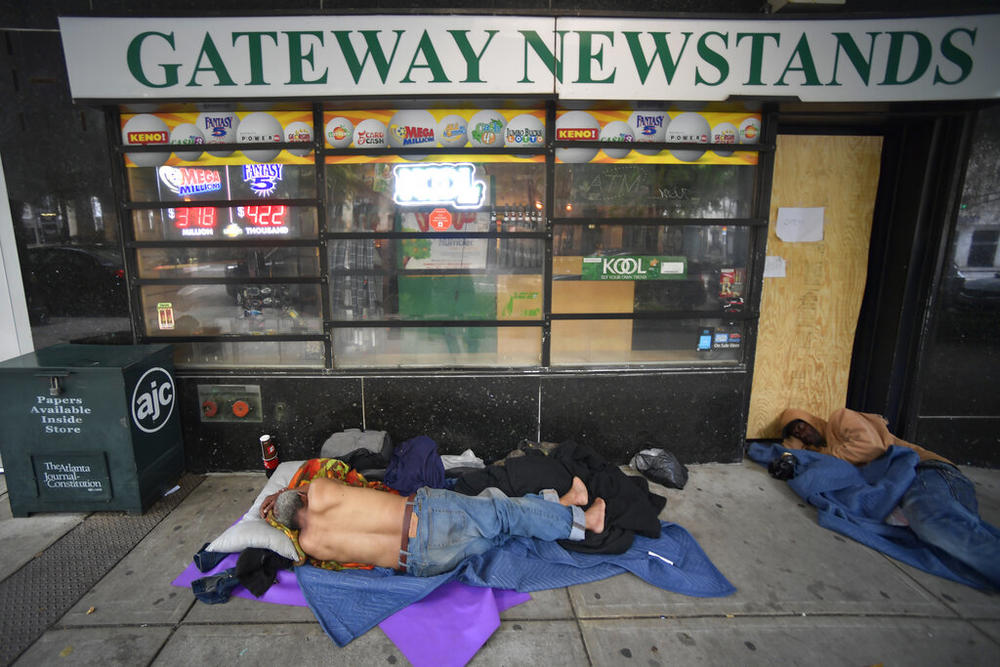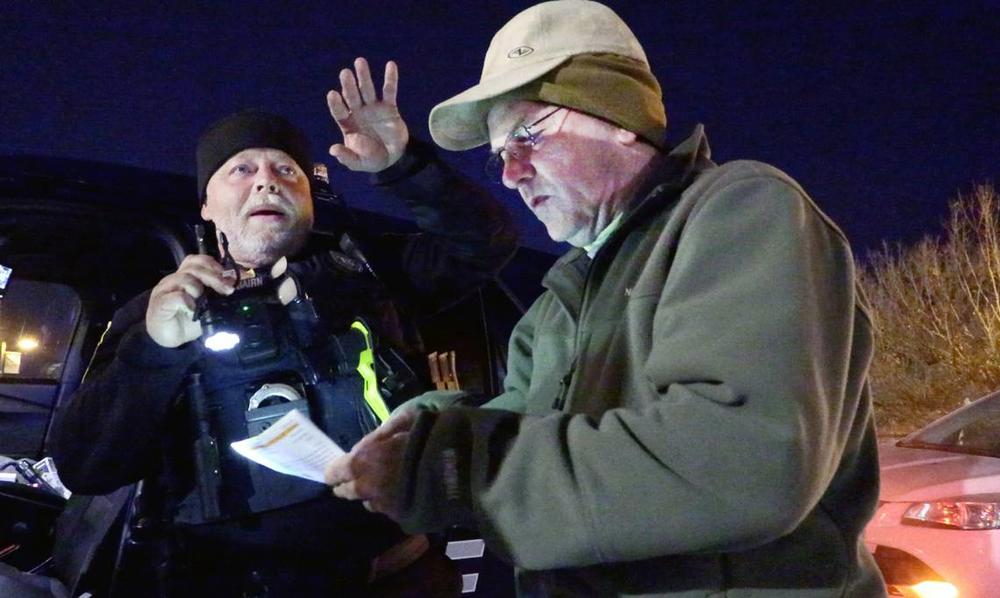
Section Branding
Header Content
DeKalb County needs 'housing first' approach to end homeless cycle of mental illness, incarceration
Primary Content
LISTEN: New data from Georgia State University show a metaphorical “revolving jail door” continues for people in DeKalb County experiencing homelessness and mental illness. GPB’s Ellen Eldridge has more on some policy recommendations to help break the cycle.

Between 2022 and 2023, there was a 63% increase in the length of time people experienced homelessness in metro Atlanta's DeKalb County, and a disproportionate number of those impacted are people of color, according to new data from Georgia State University.
Black residents make up 55% of DeKalb’s total population, but 93% of those in emergency shelters are Black, and about half of the people in emergency shelters are children.
A metaphorical “revolving jail door” continues to exist for people experiencing homelessness and mental illness, student researcher Priya Srinivasan said.
Policy must address specific needs for people with behavioral health concerns and the first step to helping people up is a safe and solid foundation, DeKalb County Commissioner Ted Terry (D-Super 6 District) said.
He is advocating for a "Housing First" model, which prioritizes providing housing without preconditions such as sobriety or psychiatric treatment.
- MORE: A growing unhoused population has been linked to rising overdose deaths. Supportive housing can help
Investing public tax dollars in housing is the best way to break the cycle of mental illness leading to incarceration, he said.
"Our judges are telling us is that they'd like to be able to refer these individuals out of jail and into a transitional housing system, because that's going to be a much more conducive environment to addressing their issues than staying in the jail for weeks and weeks and months, if not longer," Terry said.
And resources exist, he said.
One of Terry's biggest takeaways from the study is that between the court system, the sheriff's office, policing systems, and Claratel Behavioral Health (formerly known as the DeKalb Community Service Board and DeKalb County Regional Crisis Center), there are programs designed to support the Housing First model.

But it takes money.
"There just isn't enough available housing units, whether it's for supportive housing, transitional or just overall affordable housing," Terry said. "The important aspect of achieving housing first is having the available units and building enough supply to meet the demand."
- RELATED: It's the most important part of addiction recovery — and often the most difficult to access
A $15 million special purpose local option sales tax is helping DeKalb County meet the growing demand for access to mental health crisis intervention and stabilization services with a new mental health crisis facility, but Terry said it's going to take $25 million.
"We hope in the future, through state funding and other partnerships and grants, we can close that funding gap and build that crisis center, which would have 50 transitional housing units attached to the building," Terry said.
The crisis center is going to be community-focused, helping people who might be experiencing homelessness or who might be having a severe mental health crisis.
"Our goal is 100% of the time those individuals who really just need treatment in a crisis situation go to the crisis center instead of being booked into the DeKalb County jail." Terry said.
The move would save taxpayer money.
The DeKalb County Sheriff's office budget request for jail expenses increased 59% from last year, Srinivasan said. Over the past four years, actual jail expenses increased 53% from $46,269,701 in 2021 to $70,807,232 (approved in the FY2024 budget).
An evidence-based solution called Frequent Users System Engagement (FUSE) projects to save millions of public dollars with a housing-first approach to homelessness.
"It's a permanent supportive housing program that's been implemented in New York," Srinivasan said. "They project that if 1,000 people had gotten the permanent supportive housing services over five years, the savings just from avoiding jail and public shelter costs [would be] $45 million."
The last of the federal Emergency Rental and American Rescue Plan dollars are being spent in the next year and "then we're out," Terry said.
That money has been a key lifeline for a lot of the rental assistance programs and affordable housing projects, he said.
"Going into 2025, we're not going to have any more money to spend on housing," Terry said. "And so we need to commit locally to having a sustained funding source."
Legislation currently sponsored by Terry and Commissioner Michelle Long Spears directs a percentage of the general fund tax revenues to address housing issues. By starting at 1% and increasing half a percent annually until 2.5% of city and countywide revenues, this fund could potentially reach $10 to $20 million, Terry said.

